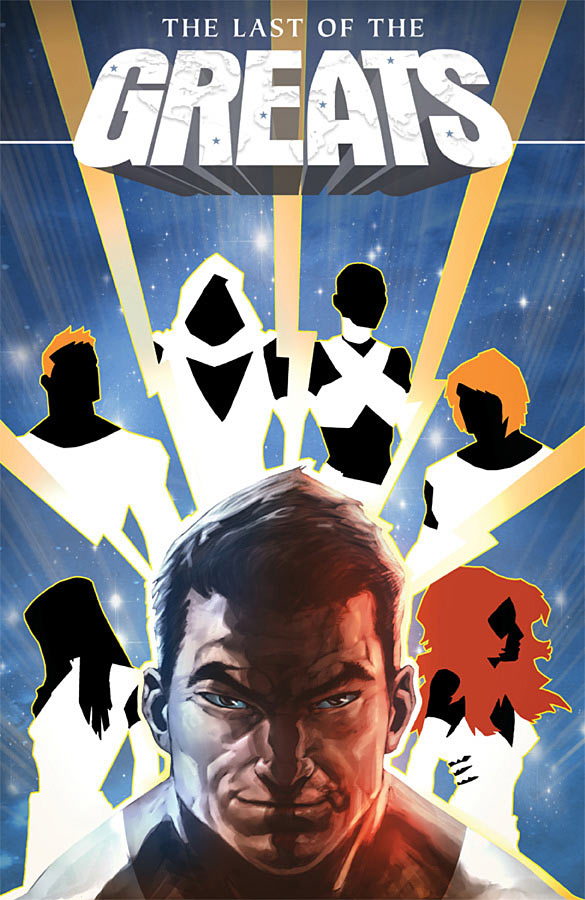|
New
& Recent Conflicts
War
and Conflict
Links Portal
for pages on the history of comics and superhero
characters Portal
for pages on the nations of the world Portal
for pages on military history Lists
of wars throughout history and from around the
world Biographical
files on individuals who impact American politics,
culture, business, education and other arenas of
life in the United States. Pages
on the governmental systems of selected
nations. United
States national government and politics. The
latest changes to the History Guy site. Information
on the History Guy, the origin of the website,
along with commentaries
and a site
map. |
Copyright © 1998-2011 Roger A. Lee and History Guy Media; Last Modified: 10.05.11.
This copyright notice covers the written text and written analysis and historical descriptions on this page.
"The History Guy" is a Registered Trademark.
Follow @ComicsHistory
Review: The Last of the Greats

Review: The Last of the GreatsWriter Joshua Hale Fialkov and artist Brent Peeples combined to create a different sort of superhero comic in "The Last of the Greats." This is a look at what happens if superpowered beings actually were to appear on an Earth that has no history of superheroes or supervillains. When the "Greats," appear (one per continent, except Antarctica), the world is at first thankful, as these powerful beings act as saviors to mankind. They end war, poverty, disease, and all of the usual negative and deadly human character traits. In doing so, they impose some restrictions, such as taking control of the worst weapons, and telling the human race that we can't hurt each other anymore. Eventually, the human race rejects these six saviors, killing them off, until Earth is seemingly free of them.
However, when a large fleet of seemingly hostile aliens approaches Earth, representatives are sent to Antarctica to plead with the last surviving Great to intervene and, in effect, to become humanity's savior. However, unlike his six siblings, the Last of the Greats holds humanity in utmost contempt, and refuses to provide aid. The end of the first book in this new series from Image Comics is a definite surprise, and I will not spoil it by describing the story further. I recommend that you read it yourself.
I almost exclusively read Marvel and DC books, and have only picked up a few Image books before, and I am not familiar with the work of either Josh Fialkov or Brent Peeples prior to reading Last of the Greats. I am impressed by Fialkov's plot. I expected a superhero story, and got something a bit different and unique. The dialogue from the Last of the Greats (the character himself), is well done. The artwork by Peeples is also quite good.
The overall theme, or tenor, of the book, reminds me of the ages-old quandary of Security vs. Freedom (or Free Will). The six Greats offered, and delivered, security from war, disease, poverty, et al, but in exchange, humanity had to surrender their free will to do all those bad things to each other. The opening scene takes place on September 11, 2001, with an aerial attack quite different from that the world saw in real life. I believe Fialkov chose that date for humanity's attack on the Greats in part due to the enhanced debate in this country (and elsewhere), between those who believe we need more security vs. those who see the erosion of our freedoms.
I look forward to reading the second issue in this intriguing new series.
Join the FREE Historyguy Update list. Receive regular updates delivered right to your inbox.
Email Marketing You Can Trust
